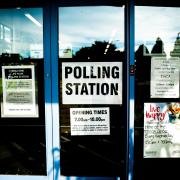
Our global food system is one in which most people either starve or have more food than they can eat, we need to do what we can to fix it.
We live in a world where the majority of the population fits into one of two extremes: ‘monopolization of food’ or ‘scarcity of food’. What can we do about it?
870 million people out of the seven billion people on earth suffer every day from hunger. At the same time, 1.7 billion people are obese or overweight as a result of high calorie intake. We have between two and three times more food than we need to feed the world’s entire population, and yet people die of starvation every single day. The fact is there is plenty of food in the world; the problem is the allocation of this food. ‘Twenty percent of the world’s population consumes eighty per cent of the resources available while the remaining eighty per cent consume only twenty per cent of the resources available.’
Ideally, children between the ages of 5 and 10 need 1,800 calories per day to be healthy; girls between 11 and 14 years need 1,850; boys between 11 and 14 need 2,200; adult women need 2,000; and men need 2,500. If all the food in the world was distributed evenly, everyone would receive around 2,720 calories per day. Countries in North America and Europe, have a much higher calorie intake than the majority of other countries, whereas most of sub-Saharan Africa suffers from the lowest calorie intake. In high-income countries (HICs), a quarter of the diet is made up of cereals, whereas over half of the diet in low-income countries (LICs) is made up of cereals as they can’t afford much more. This means that people living in LICs get the energy they need but then suffer from undernourishment as these cereals lack in other nutrients that are provided in meats and dairy, things that are unattainable for these people.
Experts estimate that approximately 40% of all food in developed countries ends up in landfills. This excludes food waste that is composted or incinerated. If all the food that was wasted in the world was given to people who don’t have access to edible food, everyone would be eating plenty every day.
There are several small things that we can do as individuals to lessen the severity of this issue. We could make a conscious effort to replace meat and fish in our diet with alternative proteins such as plant-based meat substitutes e.g. soya and Quorn. We could get DNA analysis to individualise health and diet recommendations so that our nutrition is personalised and we are less likely to eat more than we need. We could, of course, donate food to food banks and donate money to charities that provide food for people who can’t access it otherwise.
I think if everyone who has easy access to food does just one of those things, a big difference would be made and many people who suffer from hunger every day would no longer need to suffer but would lead healthy, happy lives.
Rashmini Mootoosamy





























